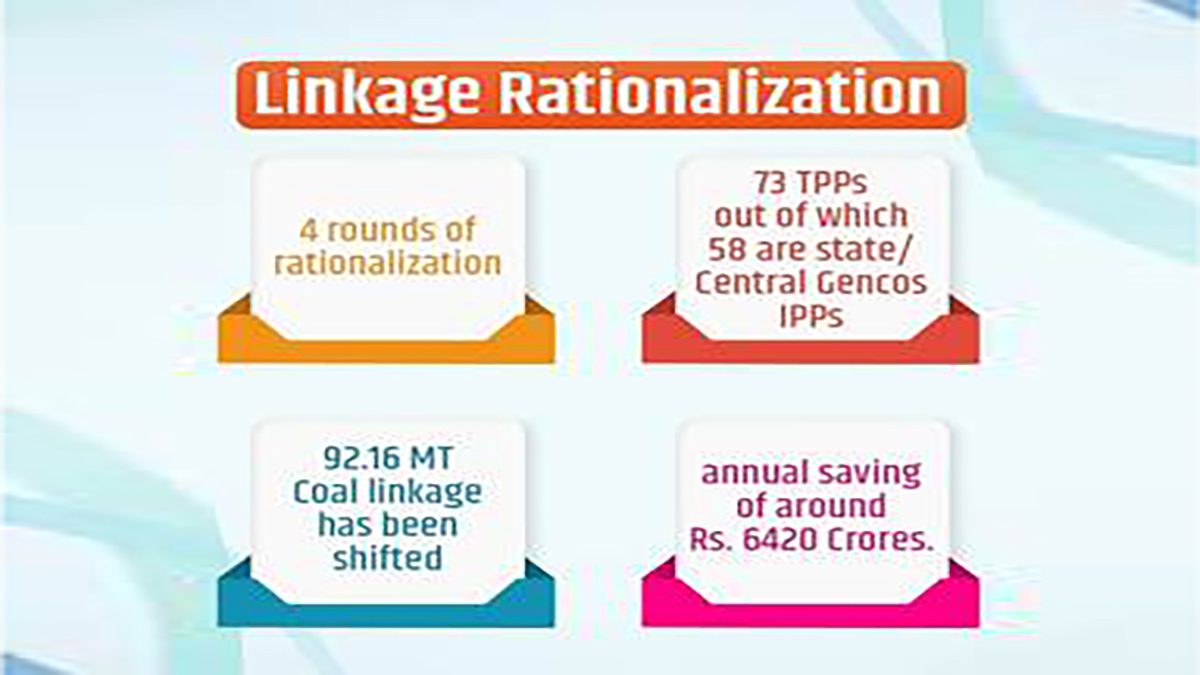In a groundbreaking initiative, the Ministry of Coal has successfully undertaken four rounds of rationalization of coal linkages, significantly enhancing the efficiency of the thermal power sector while generating substantial cost savings. This policy drive, aimed at reducing transportation costs and increasing the effectiveness of coal-based power generation, has yielded remarkable results for the energy landscape of India.
The primary objective of the initiative was to reduce the distance that coal travels from mines to power plants, thereby cutting down transportation expenses and enhancing overall efficiency. With the rationalization of coal linkages, not only has the transportation cost significantly decreased, but it has also led to more efficient coal-based power generation. This strategic move has not only eased the pressure on transportation infrastructure but has also reduced the landed cost of coal.
The journey towards coal linkage rationalization began with State/Central Public Sector Undertakings (PSUs) based on the recommendations of the Inter-Ministerial Task Force (IMTF) established in June 2014. Subsequently, in July 2017, another IMTF was formed to rationalize the linkages of Independent Power Producers (IPPs). The methodology for rationalization of coal for IPPs and private sector plants was issued on May 15, 2018. To further explore possibilities, another IMTF was constituted in October 2018 to examine the potential for additional coal linkage rationalization, including the swapping of imported coal with domestic coal.
So far, four rounds of rationalization of linkages have been conducted, encompassing 73 Thermal Power Plants (TPPs). Among these, 58 belong to State/Central GENCOs, while 15 are owned by IPPs. This strategic rationalization has resulted in a remarkable optimization of 92.16 million tonnes (MT) of coal, with an annual potential saving of approximately ₹6,420 crores.
One of the key milestones in this journey has been the participation of Coal India Limited, which invited Expressions of Interest (EOI) from both Independent Power Producers (IPPs) and Generating Companies (GENCOs). This visionary policy aims to substantially reduce transportation costs, which in turn will curtail fuel expenses, ultimately delivering tangible benefits to consumers.
The rationalization of coal linkages is not just about operational efficiency; it’s about fostering a more sustainable energy ecosystem. The policy initiative reflects the Ministry of Coal’s commitment to striking a balance between economic growth and environmental responsibility. By optimizing operations and driving down costs, the ministry is leading the charge towards a future where efficiency, affordability, and environmental sustainability coexist harmoniously.












